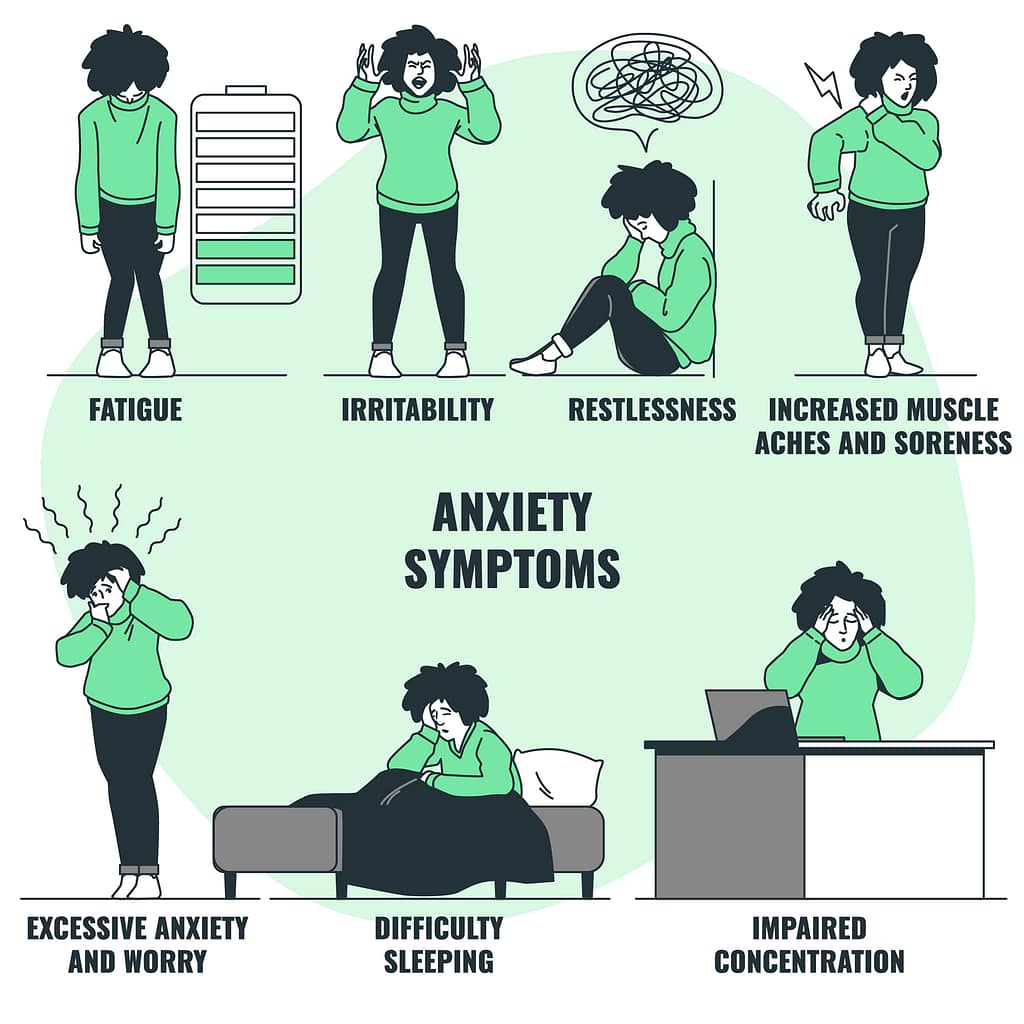
Anxiety doesn’t always look the same. For some, it’s racing thoughts at night. For others, it’s a pounding heart and a constant sense of dread. If you’re searching for anxiety help near me, you’re already on the right track. Finding the right support nearby can be a powerful step toward restoring your sense of calm and balance.
This article covers how to identify when to seek help, the types of support available near you, and how to start your journey toward healing.
Understanding Anxiety: More Than Just Worry
Everyone experiences occasional nervousness. But when anxiety becomes chronic or overwhelming, it may point to an anxiety disorder.
Common Anxiety Disorders Include:
- Generalized Anxiety Disorder (GAD): Ongoing and excessive worry about everyday situations, often without a clear cause.
- Panic Disorder: Sudden bouts of intense fear, often with physical symptoms
- Social Anxiety: An intense fear of being judged, criticized, or embarrassed in social or performance situations.
- Phobias: Intense fear of specific objects, environments, or situations
Anxiety can affect your sleep, appetite, concentration, and relationships. If left untreated, it can significantly impact every aspect of your life.
Signs You Might Need Professional Anxiety Help
How can you tell when it’s the right moment to seek help?
Look for these signs:
- Daily feelings of fear, worry, or dread
- Restlessness or being constantly on edge
- Panic attacks (racing heart, sweating, shortness of breath)
- Avoiding situations or places due to fear
- Trouble concentrating
- Difficulty sleeping or frequent nightmares
If you notice these symptoms for more than a few weeks, it’s time to find anxiety help near me.
Why Finding Local Support Makes a Difference
There’s no shortage of mental health apps and digital therapy options. But local support can be especially valuable because it:
- Offers face-to-face connection: In-person care helps build trust and accountability
- Connects you with nearby resources: Group therapy, crisis centers, wellness workshops
- Provides quicker access to emergency care: If symptoms worsen suddenly
- Supports long-term care relationships: With therapists, counselors, or psychiatrists, you can meet regularly
Whether you’re looking for traditional therapy or advanced treatments, starting with someone nearby is often the most sustainable option.
Where to Find Anxiety Help Near Me
Searching for help might feel overwhelming at first, but these resources can point you in the right direction:
1. Primary Care Providers
Your family doctor can assess symptoms, rule out physical causes (like thyroid issues), and refer you to a mental health specialist.
2. Licensed Therapists and Counselors
They provide talk therapies such as:
- Cognitive Behavioral Therapy (CBT) – Restructures negative thinking
- Exposure Therapy: Helps reduce fear and anxiety by gradually and safely confronting the situations or objects that trigger it.
- Mindfulness-Based Therapy – Reduces anxiety through awareness and acceptance
You can find therapists using tools like:
- Psychology Today Therapist Directory
- TherapyDen
3. Psychiatry Services
Psychiatrists and psychiatric nurse practitioners are qualified to diagnose anxiety disorders and provide medication when it’s needed as part of a treatment plan.
4. Community Mental Health Clinics
Many counties offer public clinics that provide low-cost or sliding-scale services to individuals without insurance.
5. Support Groups
Peer support groups, often hosted by local nonprofits or hospitals, allow you to share experiences and coping strategies in a safe environment.
Spotlight on Local Support: Holsoms TMS Wellness Clinic
If you’re located in Minnesota and searching for anxiety help near me, Holsoms TMS Wellness Clinic in Dayton is a trusted option. They offer both traditional and advanced care, including psychotherapy, medication management, and Transcranial Magnetic Stimulation (TMS) therapy.
Holsoms is known for its integrative and compassionate approach, helping patients manage anxiety with science-backed methods tailored to their needs.
What is TMS, and Who Is It For?
Transcranial Magnetic Stimulation (TMS) is a safe, FDA-approved, and non-invasive treatment that uses targeted magnetic pulses to activate specific areas of the brain involved in mood regulation, offering effective relief for individuals struggling with anxiety and depression.
Why People Choose TMS:
- No medication or sedation required
- Few side effects
- Short sessions (usually under 30 minutes)
- Ideal for those not responding to therapy or medication alone
While not everyone is a candidate, TMS offers hope for individuals with treatment-resistant anxiety, and is one of the specialized services offered at Holsoms TMS Wellness Clinic.
Tips for Choosing the Right Anxiety Support Near You
Choosing the right provider matters. Keep these tips in mind:
- Check credentials: Look for licensed professionals with experience treating anxiety
- Read reviews: Online feedback can help you gauge quality and approach
- Ask about specializations: Not all therapists treat all forms of anxiety
- Verify insurance compatibility or ask about sliding-scale fees
- Book a consultation: Many offer free or low-cost first appointments
Trust your gut. If a provider doesn’t feel like the right fit, it’s okay to keep looking.
Self-Help Strategies to Manage Anxiety in Daily Life
While seeking professional help, here are small steps that can help ease anxiety:
- Practice deep breathing or meditation daily
- Get regular exercise, even light walks
- Keep a journal to identify triggers and track progress
- Limit caffeine and sugar
- Stick to a sleep routine
- Reach out to supportive friends or family
These habits don’t replace therapy but can complement it and help you feel more in control.
Frequently Asked Questions
1. Is anxiety treatable?
Yes, anxiety disorders are highly treatable through therapy, medication, or a combination of both.
2. Do I need medication to manage anxiety?
Not always. Many people benefit from therapy alone. However, medication can provide relief when symptoms are severe or persistent.
3. How long does treatment take?
It varies. Some people feel better in a few weeks, while others may need several months. Consistency is key.
4. What if I can’t afford therapy?
Look for clinics that offer sliding-scale rates, telehealth options, or community mental health centers that provide free or low-cost care.
5. How do I know if I need help or if it’s stress?
If your anxiety affects your daily life—your work, relationships, or health—it’s time to reach out.
Conclusion: You’re Not Alone—and Help Is Nearby
Struggling with anxiety can feel lonely, but it doesn’t have to be. From talk therapy to advanced options like TMS, there are more tools than ever to help you feel better. Whether you’re just starting to explore your symptoms or looking for a new approach, local support is available.
If you’re in Minnesota, Holsoms TMS Wellness Clinic offers a personalized and caring environment where healing begins. And wherever you are, searching for anxiety help near me is a bold and hopeful first step.
Take it today, your peace of mind is worth it.
